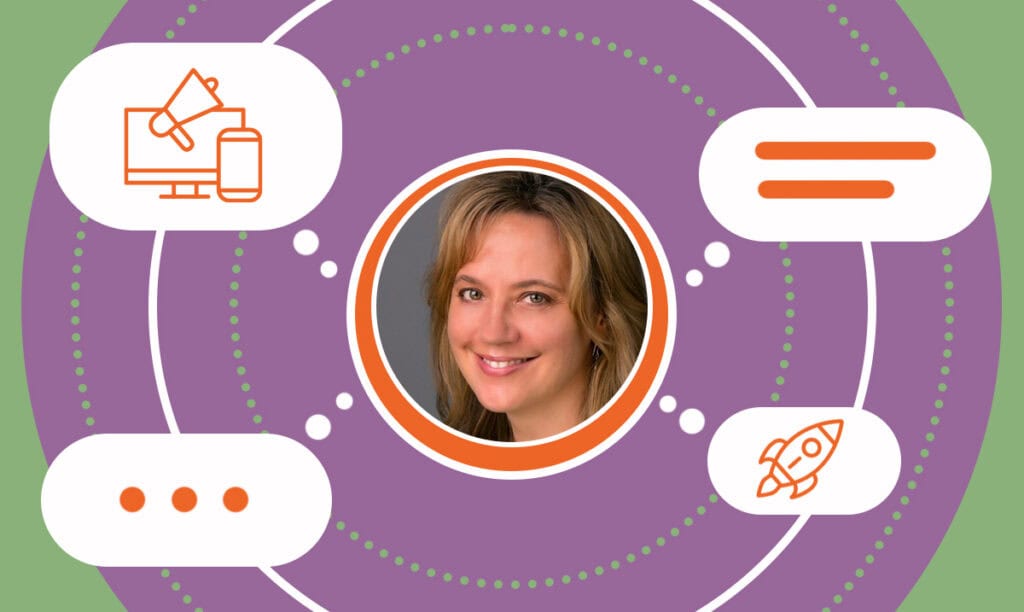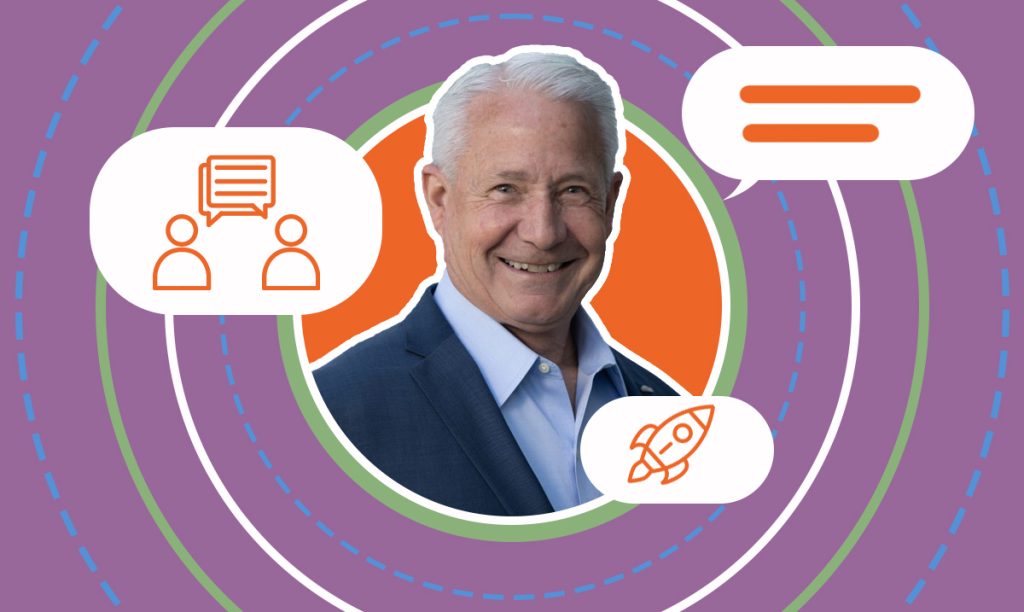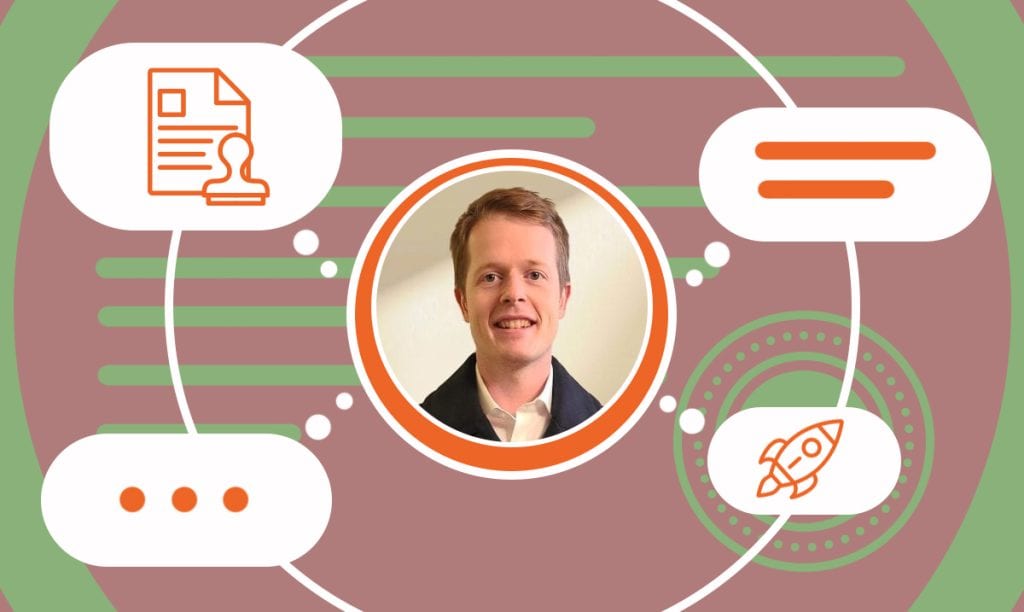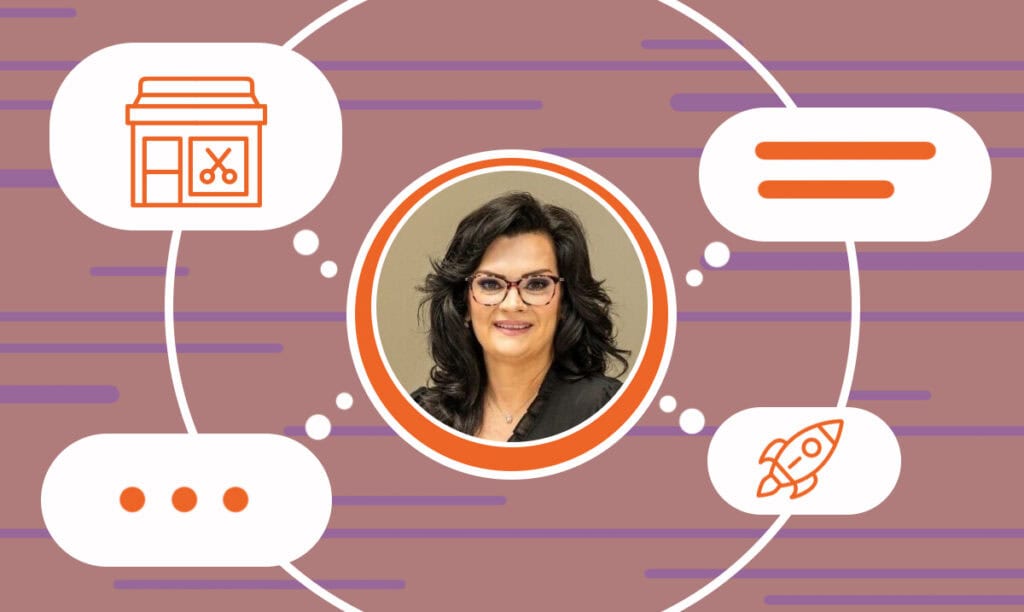When it comes to business banking, a one-size-fits-all approach doesn’t cut it — just ask Endeavor Bank. Since its founding in 2017, EndeavorBan ...
How Lisa Verbeck Blends PR and Marketing to Elevate Tourism
Written by: Carolyn Young
Carolyn Young is a business writer who focuses on entrepreneurial concepts and the business formation. She has over 25 years of experience in business roles, and has authored several entrepreneurship textbooks.
Published on April 29, 2024

This interview brings the story of Lisa Verbeck, a marketing and communications executive and the founder of Lisa Verbeck Consulting. Transitioning from journalism, she forged a unique path that marries marketing and communications and founded her agency in 2021. Lisa’s consultancy business focuses on guidance for travel and tourism businesses and nonprofits, and the story started amidst the upheaval of COVID-19 when she worked on helping travel businesses get back on the map.
Here, Lisa sheds light on the challenges encountered in the first stages of entrepreneurship, the strategies that set her consultancy apart, the day-to-day realities of an entrepreneur, and much more!
Let’s explore this entrepreneurial odyssey!
Origins and Vision
SBS – What’s the story behind your business?
Lisa – I started Verbeck Consulting in January of 2021 after losing my job at a destination marketing organization due to COVID. I’ve been in the travel industry most of my career, and when COVID hit, the industry was completely decimated. At that point, I wasn’t even sure if tourism would be an industry anymore.
However, I’ve always believed that travel is the best form of connection, and it would come back stronger than ever, and people would want to get out in the world and connect again. So, rather than trying to find a new full-time job in an industry that was laying everybody off, I decided to focus solely on travel and tourism in my own business, my consultancy. I wanted to focus on clients with a purpose, nonprofits, and companies trying to make travel more accessible. I was doing a lot of soul-searching and digging into what was important to me because I was given a chance to take a step back and decide what I wanted to do.
I had to stay true to my desire to work in travel and tourism, but international travel was pretty much shut down for so long, so I pivoted and focused on domestic travel. When people were able to travel again, they stayed closer to home. We started off focusing on California and many counties and cities within the state that were getting a lot more tourism. It started from there, and my business has grown from referrals.
My background is in public relations. I started in journalism, first in an agency and then in-house. I also expanded and became more of a marketer as I learned more about consumer behavior and target audiences, and I have decided that my practice will encompass both marketing and communications.
Navigating Early Obstacles
SBS – What were some significant challenges that you had in that first year?
Lisa – I relied heavily on my network. Everyone was very supportive because we were all in the same place of having COVID impact our lives and livelihoods. Even though I couldn’t go out and network in person at the time, I did a lot of networking online, which we were all getting used to.
I was very fortunate to get Tourism Fiji as my first client. Many of these companies had to let go of their whole teams, and they couldn’t afford to bring them back as the world started to open again because they weren’t sure what tourism would look like and how it would be impacted. Because of that, they were very interested in hiring part-time consultants, temporary staff, and fractional workers to get them through that first period. One of my first projects was reopening Fiji after it had been closed for over a year. I had the task of communicating the message about being safe and telling the trade how to book and what the protocols would be when people landed.
That just got me out talking to the industry again. People found out I was available as a consultant, and I had started just by myself, but I suddenly realized there was enough work out there for me to have a team. I have grown over the past few years to where now I have five people focused on different disciplines. We can do digital marketing, events, communications, and representation, and then I lead the team and the strategy. To grow your own business, you have to spend enough time on it. As some of my clients say, you’ve got to chop the wood and get everything else done. I spend time managing the team, managing the clients, and ultimately growing the business.
Setting Yourself Apart
SBS – What makes you different from other companies that offer similar services?
Lisa – First of all, I think it’s hard to find someone who understands both communications and marketing. Many people think that communications is just part of marketing, but it’s very different, although the two worlds are starting to combine a little more. I started my career in journalism, so I understand storytelling and the value of PR and media relations. I evolved into marketing, and I understand targeting, creative and emotional reactions to the brand, and how to position a brand. There are a lot of excellent marketers out there, but they don’t necessarily understand the communication side. There are amazing communicators out there, but they don’t understand the marketing and branding side. I can marry those two disciplines very well with my background.
There’s also an integrated approach. There are so many agencies out there that are siloed. They have their PR department, digital department, and other teams, but nobody talks to each other, and they’re all off doing their own thing. My business is small enough to where I can make sure that the approach we take is completely integrated. We’re small and nimble, and we’re not trying to bill out seven different levels of people at different rates and get all these different departments involved. We can sit down as a team and build something that is completely integrated.
A Day in the Life of an Entrepreneur
SBS – Can you describe your typical day as an entrepreneur?
Lisa – Being in the travel industry, you’re never really off because you have clients all over the world. I have a client in Vienna, so I am often up at five or six in the morning. I’m often up early for my European clients because it’s the end of their day. I also have clients in Australia, and of course, they don’t come online until three in the afternoon, so I often have a very early start and a very late finish. I put some time in the middle for myself to enjoy a nice long lunch.
The good news is that Friday in America is Saturday in Australia, so I typically take my Fridays for my business and myself. My Fridays consist of billing, accounting, and meetings with my CPA. While I’m available to clients on Fridays, I focus on business with my business partners. I try to put all of that into Fridays because many of my clients are in Europe, and by Friday noon, they’re all off for the weekend. For my Australian clients, it’s Saturday.
To answer your question, I don’t often have a typical day other than it will typically start early and end late. Fridays are my days to plan my week ahead. On other days, I’m on a lot of calls and in a lot of meetings, and I travel a lot, so the work’s always on.
Marketing Evolution
SBS – How much has your marketing changed from the beginning, and what do you use to attract new customers and retain existing ones?
Lisa – I’m doing a lot more thought leadership pieces now. I post about trends in the industry. I also share news or wins. I used not to be very good about celebrating wins and tooting my own horn, but knowing that you have a business to run and need visibility, I have learned how important it is.
I have a schedule for posting about our successes. For me, that’s changed. It’s more of a trait that I had to inherit. I was always used to promoting other people, other clients, and other products, and I had to get used to promoting myself. It’s more of just a mind shift to allow myself permission to promote my business and our services.
Building a Cohesive Team
SBS – How did you build your team? What things do you believe are essential for someone to fit in your team?
Lisa – Culture is really important. When you’re working in different time zones, it’s hard, but most people I work with are in LA, and we have all worked together before, one way or another. I brought people on that I feel are trustworthy and collaborative because I can’t afford to have someone who’s a siloed thinker. The PR person needs to be able to work with the digital marketing person. I need someone who’s collaborative and who is going to fit into the kind of culture that we’re trying to create.
Words of Wisdom for Aspiring Entrepreneurs
SBS – What advice would you give someone wanting to start the same business?
Lisa – Don’t be afraid to get people to help you with areas of the business you’re unfamiliar with, like a CPA. Trying to do everything yourself, you ultimately realize that that’s not your area of expertise, and you’re spending so much of your power, and you should be outsourcing that. I needed to know enough about it to hand it off without worrying about it. Even in the beginning, you may think you can’t afford to have a CPA or a lawyer, but I got a lot of advice from the Small Business Association and nonprofits that help small businesses. I listened to what they said and got help from people with that expertise rather than trying to do it all myself.
Future Projections
SBS – How do you see the company in the next five years? Do you see it evolving, hiring more people, or focusing on something else?
Lisa – As far as staff goes, I don’t think we’ll grow much more. I want to keep a small team. I don’t envision becoming a big agency, but I’d like to take my clients and grow the services I can offer them rather than bringing on a whole bunch of new clients. I’ll take the businesses that I know well, that I’ve invested in, I’ve created a partnership with, and try to grow those because it’s always easier to take what you have and grow it than go out and find a lot of new business. When you get to know your client’s business as well as I do, it does take a lot of brainpower, so it’s not like I can bring on another five clients and get to know their businesses. I’m focused on growing the business that I have and offering additional services to them.
For example, because I’m in the travel industry, we do media tours where we have a new product we’re launching, or we’ll do a roadshow to travel agents to tell them about a new destination or product. I’m looking at event services around roadshows and special events and planning around that. I have someone on my team who is a travel agent and an expert at event management, so we can do these kinds of projects. That’s probably where we’re going to grow next — helping my existing clients with that type of thing.
Exploring AI Integration
SBS – Do you believe that AI can help you in your services?
Lisa – I do believe AI can help all of my clients and me. I spend a lot of time advising them on how they can use AI to help their businesses. We just had a client who was trying to analyze a whole bunch of survey data, and I suggested they write a prompt, and they can get AI to generate the highlights or insights from all of that data very quickly. AI’s amazing, but I know everyone’s afraid of it, and I do think there will be some negative implications if we don’t manage it and control how it infiltrates our lives.
Comments
Leave a Reply
Subscribe to Our Newsletter
and gain insider access to cutting-edge business insights and trends.
Featured Resources

Empowering Entrepreneurs with a Consultative Banking Model
Published on January 23, 2025
Read Now

How Painless Notary Simplifies the Process with Mobile Services
Published on August 26, 2024
In an industry traditionally rooted in face-to-face interactions, Kyle Beam is challenging the status quo with Painless Notary, a company dedicatedt ...
Read Now

How to Succeed in the Salon Suite Business
Published on July 22, 2024
In this interview, we sit down with Karen Kaminski, the owner of Allure Salon Suite Consulting. Karen shares her journey from owning a nail salon to ...
Read Now
Wonderful article Carolyn. Lot’s of insights and a rare find!